I started to do a blog about home. No reason, just came to me. Of course the first quote I found was "Home is where the heart is." It is attributed to Pliny. I got to wondering, who is Pliny? or more accurately, who was Pliny?
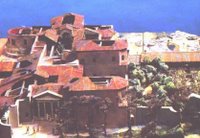
I found a picture of a reconstruction of his home in Italy. (Where his heart was.)
Here are a few more quotes by Pliny, all of which seem so wise and true
An object in possession seldom retains the same charm that it had in pursuit.
Grief has limits, whereas apprehension has none. For we grieve only for what we know has happened, but we fear all that possibly may happen.
Hope is the pillar that holds up the world. Hope is the dream of a waking man.
In these matters the only certainty is that nothing is certain.
Such is the audacity of man, that he hath learned to counterfeit Nature, yea, and is so bold as to challenge her in her work.
The depth of darkness to which you can descend and still live is an exact measure of the height to which you can aspire to reach.
The lust of avarice as so totally seized upon mankind that their wealth seems rather to possess them than they possess their wealth.
The real sin against life is to abuse and destroy beauty, even one's own -even more, one's own, for that has been put in our care and we are responsible for its well-being.
Truth comes out in wine.
So who is this wise guy? Well, it wasn't that easy to figure out. There were two Plinys. Pliny the Elder and Pliny the Younger. The elder was the uncle of the younger.
Here is what I found, in a nutshell, about Uncle Pliny:
________________________________________________________________
In A.D. 77 a workaholic called Pliny the Elder published the first encyclopedia, Natural History. Headless people were among the many marvels
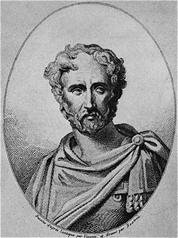
Gaius Plinius Secundus, the man we know as Pliny the Elder, was born in Como, Italy, in A.D. 23. By the time he died 56 years later, he had been a cavalry officer, an adviser to emperors and the author of at least 75 books, not to mention another 160 volumes of unpublished notebooks. He is remembered today for just one of those works, his 37-volume Natural History, in which he planned to "set forth in detail all the contents of the entire world."
It is a wonderful melange of the real and the fantastic, the never was and the never could be. He wrote of dog-headed people who communicated by barking, and people with no heads at all, their eyes in their shoulders. He wrote of snakes that launch themselves skyward to catch high-flying birds, and of the "basilisk serpent" of Africa, which kills bushes on contact, bursts rocks with its breath and is so venomous that when one was killed by a man on horseback, "the infection rising through the spear killed not only the rider but also the horse."
________________________________________________________________
But Pliny the Younger was the one to whom these quotes are attributed. He is fascinating. Here is a little bit of what I found out about him:
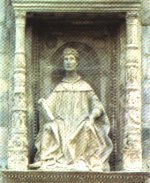
Pliny the Younger or Caius Plinius Caecilius Secundus (62-c.115): Roman senator, nephew of Pliny the Elder, Governor of Bithynia-Pontus (109-111), author of a famous collection of letters.
The Roman senator Pliny the Younger is one of the few people from Antiquity who is more to us than just a name. There is a long inscription which mentions his entire career, one or two of his houses have been discovered, and -more importantly- we can still read many of his letters. They are often very entertaining: he tells a ghost story, gives accounts of lawsuits, guides us through his houses, describes the friendship of a boy and a dolphin, informs us about the persecution of Christians, tells about the eruption of the Vesuvius. But we can also read his correspondence with the emperor Trajan. With the senator Cicero and the father of the church Augustine, Pliny is the best-known of all Romans.
_________________________________________________________________
He had a lot to say and the few excerpts I've read are really fascinating. Some day, I would like to read some of what he wrote. If you go to the following website, you can read his account of the eruption of Vesuvius and the destruction of Pompei, when as a teenager in the nearby town of Misenum he and his mother survived the catastrophe while Uncle Pliny perished. It is a fascinating account and I have always been intrigued by Pompei...)ever since that National Geographic showed those poor people and the little dog preserved by volcanic ash from the eruption.)
http://cornellia.fws1.com/pompei.htm
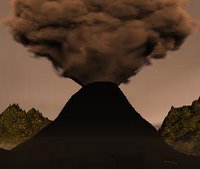
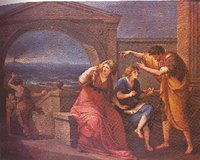 Pliny the Younger and his mother at Misenum during the eruption of Vesuvius.
Pliny the Younger and his mother at Misenum during the eruption of Vesuvius.Wow! I never know where this blog is going to take me. I hope you enjoy coming along for the ride.
Have a great Saturday.
Love,
Suz




No comments:
Post a Comment